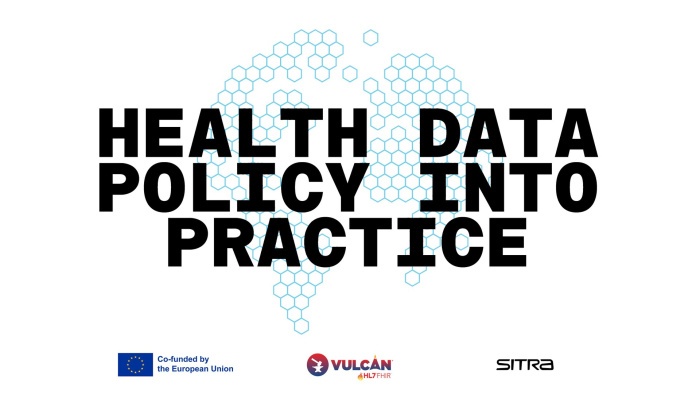European Health Data Space: Council and Parliament Reach an Agreement

© Shchipkova Elena/Shutterstock.com
The EU Council and the European Parliament have reached a provisional agreement on a new law that facilitates the exchange and access to health data at EU level. The agreement now needs to be approved by both the Council and the Parliament.
The proposed regulation for a European Health Data Space (EHDS) aims to improve individuals' access to and control over their personal electronic health data while enabling the reuse of certain data for public interest, policy support, and scientific research purposes. It envisages a health-specific data environment that will contribute to fostering a single market for digital health services and products.
Currently, cross-border access to health data in the EU is regulated differently. The new regulations are intended to allow a Spanish tourist to fill a prescription at a German pharmacy or doctors to access the health data of a Belgian patient being treated in Italy.
Frank Vandenbroucke, Belgian Deputy Prime Minister and Minister of Social Affairs and Public Health:
"After months of hard work and great commitment, we have reached an agreement that will strongly support patient care and scientific research in the EU. The new law we agreed upon today will allow patients to access their health data wherever they are in the EU, and..."
... at the same time, provide a wealth of secure data to scientific research for important public interest reasons that will benefit health policy development.
Easier Access to Health Data for Individuals
Under the new regulations, individuals will have faster and easier access to electronic health data, regardless of whether in their home country or another Member State. They will also have more control over the use of this data. EU countries must establish a digital health authority to implement the new provisions.
Greater Research Potential
The EHDS will also provide researchers and policymakers access to certain types of secure health data, enabling them to harness the vast potential of EU health data for scientific research in the public interest.
Ensuring Interoperability
Currently, the level of digitization of health data varies from one EU member state to another, making data exchange across member state borders difficult. The proposed regulation stipulates that all electronic patient data systems must comply with European specifications for the exchange of electronic patient data to be interoperable at EU level.
Key Elements of the Provisional Agreement
The provisional agreement reached today between the Council and the Parliament amends the original Commission proposal in several key areas, including:
- Opt-out: Member States may allow patients to object to access to their health data, whether by healthcare professionals (primary use) or for reuse (secondary use, always under strict conditions), except for purposes of public interest, policy-making, statistics, and research in the public interest.
- Limited information: If patients choose to restrict information, healthcare professionals may only access restricted health data in situations of vital interest.
- Sensitive data: Member States may introduce stricter measures for access to certain sensitive data, such as genetic data, for research purposes.
- Trusted data custodians: To reduce administrative burden, Member States may establish trusted data custodians capable of securely processing requests for access to health data.
- Clinically relevant findings: When researchers inform health data access committees (HDAB) of findings that may impact a patient's health whose data have been used in scientific research, the HDAB may inform the trusted data custodian, who must inform the patient or treating physician of these findings.
The Next Steps
Both the Council and the Parliament must now approve the provisional agreement. After legal revision, both bodies will then formally adopt it. The regulation will enter into force 20 days after its publication in the Official Journal of the EU.
Background
On May 3, 2022, the European Commission published a proposal for a regulation to create a European Health Data Space (EHDS). The proposal is the first of nine European sector- and area-specific data spaces presented by the Commission in its 2020 communication "A European Strategy for Data." The Council adopted the mandate for negotiations on December 6, 2023.
The EHDS aims to facilitate cross-border access to health data and its exchange to support both healthcare (primary data use) and health research and policy-making (data reuse, also known as secondary data use). It is considered one of the key pillars of the European Health Union.
Source: Press Release on the Council of the European Union website
Statement on the European Health Data Space (EHDS)
Sebastian C. Semler, the TMF’s Managing Director:
The establishment of a European Health Data Space (EHDS) offers great opportunities for healthcare and research.
"An intra-European data exchange lays the foundation for improving healthcare and enables secondary use of health data for research. The EU's agreement on the EHDS and the adoption of the Health Data Usage Act (GDNG) are significant milestones for improving the use of health data for medical research in Germany or Europe.
Developing a common health data architecture and a vision for data use is necessary to successfully meet the requirements of a digital healthcare and research landscape. In the context of the EHDS, it is more important than ever for healthcare and research to be more closely integrated. The Medical Informatics Initiative (MII) in Germany has laid the groundwork for a decentralized infrastructure and relevant preliminary work for the EHDS but still faces challenges. The GDNG provides central data access and a coordination point for health data. The Research Data Portal for Health (FDPG) created for research access to university medical data by the MII can serve as a blueprint for their work.
We must focus on the added value of data use and move away from a theoretical and data protection-based consideration only of interfaces and IT systems. It is important to consider who can provide and use data. This must also consider how we can maintain and expand acceptance of data use among the population. Educational offerings are needed to improve data literacy."


